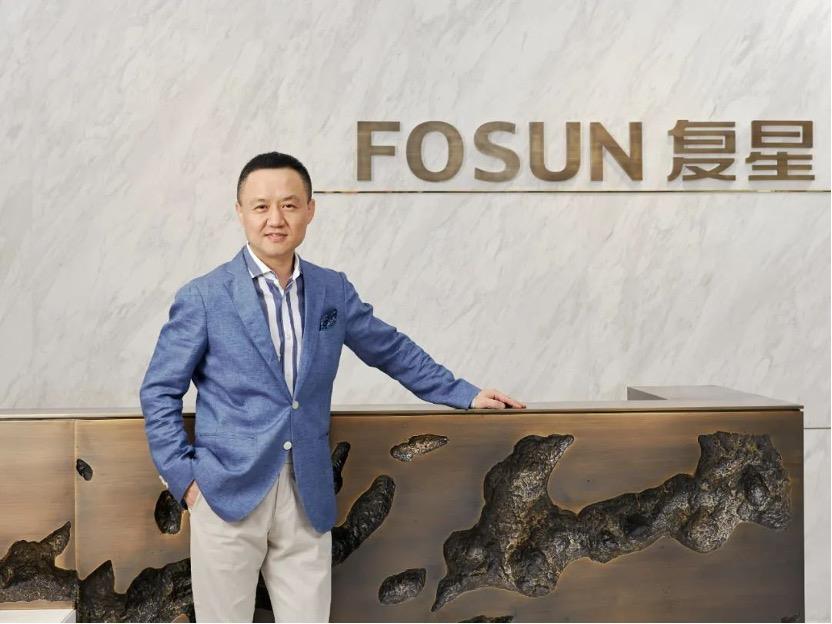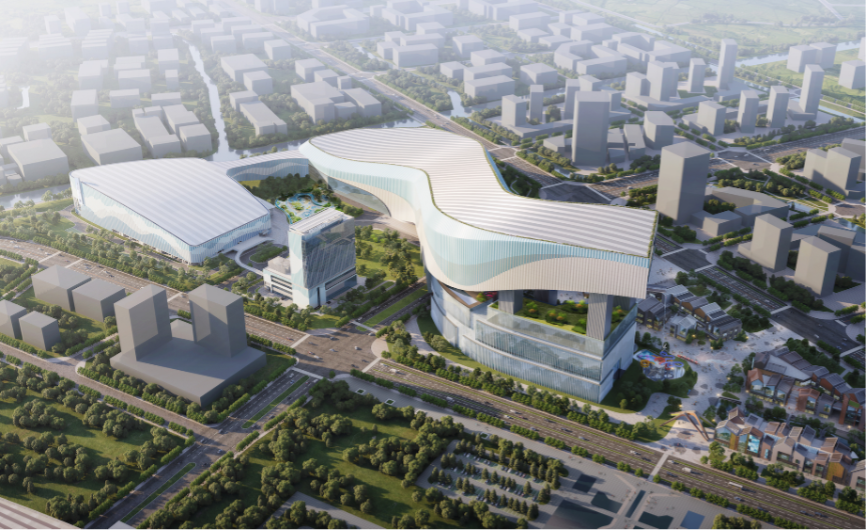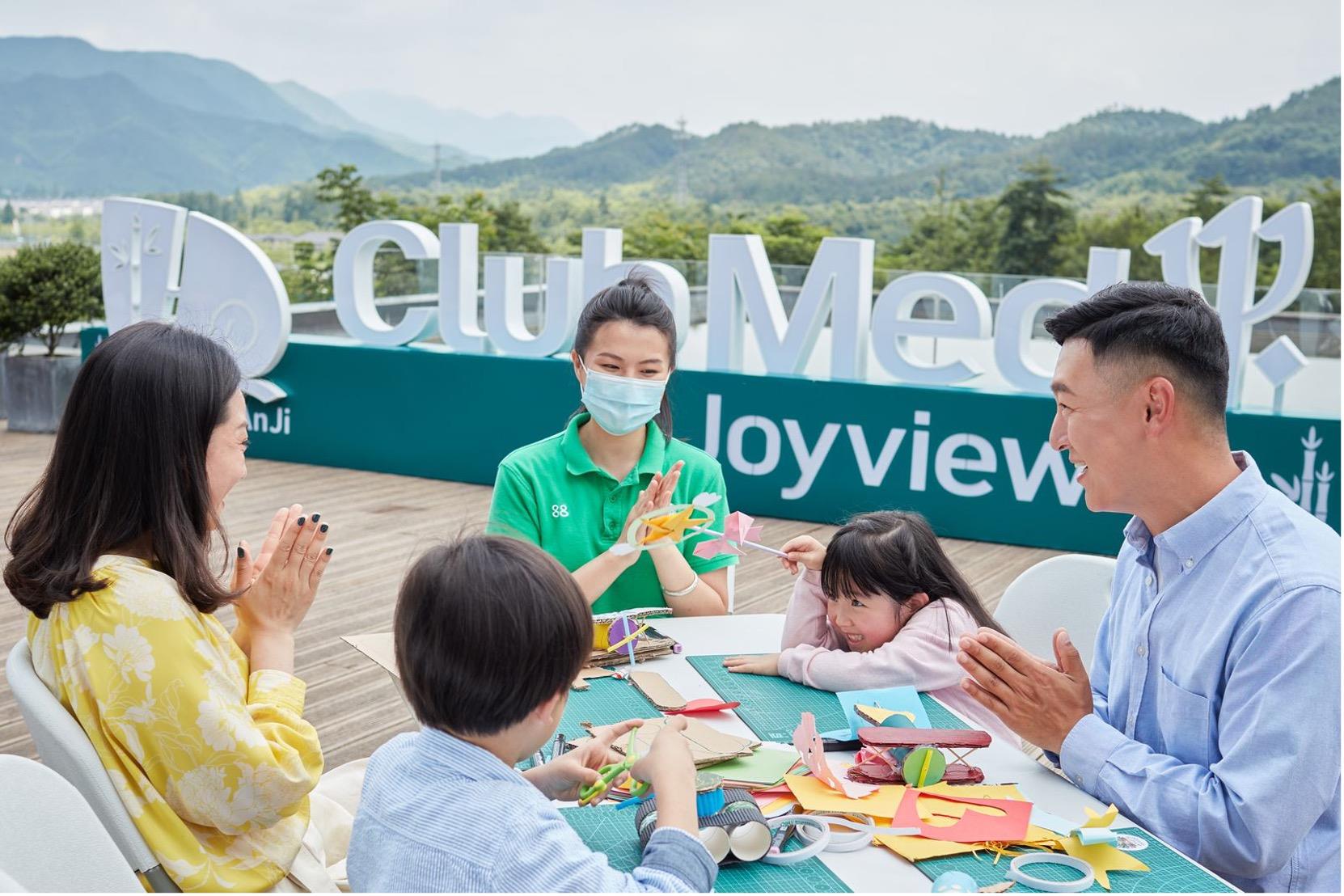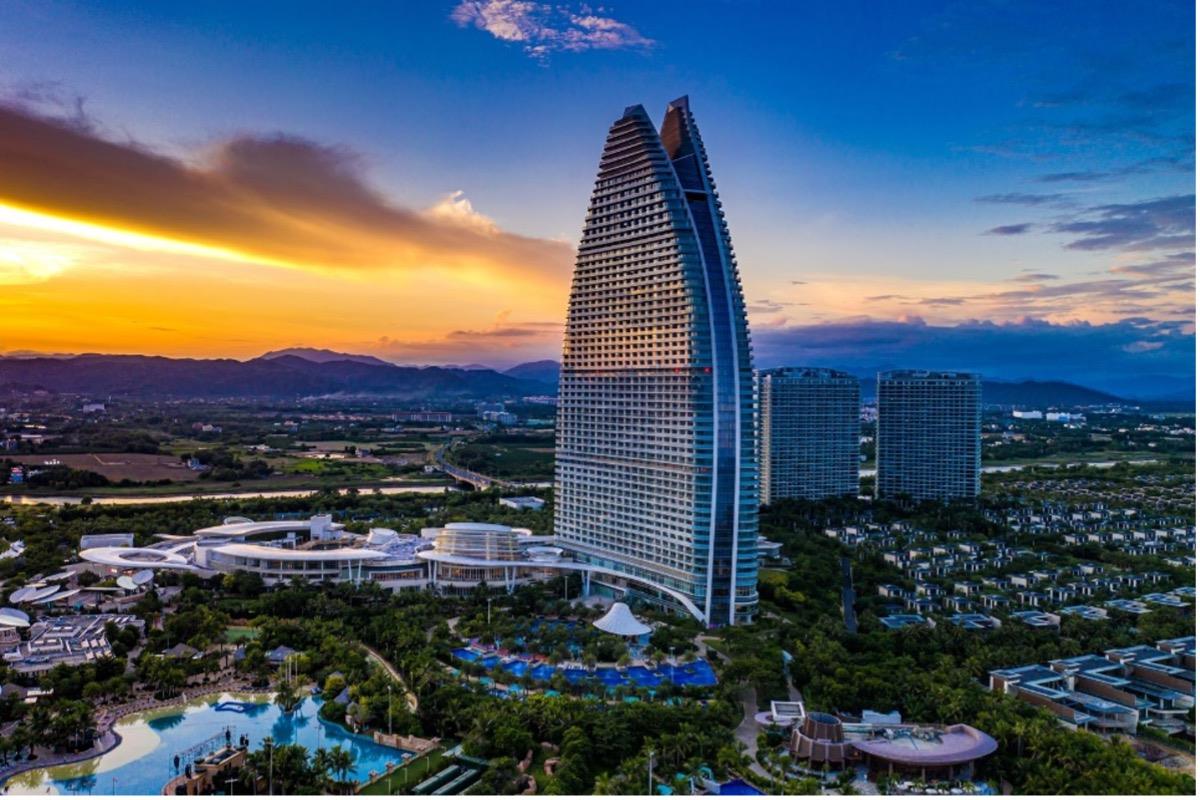Globalization and Innovation Drive Fosun’s Steady Development
On April 11, Hong Kong’s most widely circulated newspapers,Headline Daily and Sing Tao Daily, published a full-page feature interview with Xu Xiaoliang, Co-CEO of Fosun International. The headline was titled “Focusing on Core Businesses and Achieving Balanced Investment and Divestment, Leveraging Globalization and Innovation to Drive Fosun’s Steady Development”. Below is the translation version of the full article:

Xu Xiaoliang, Executive Director and Co-CEO of Fosun International
“Fosun will further deepen our focus on core industries, leveraging our globalization and innovation capabilities to drive operating profit, striving to achieve RMB10 billion in industrial operation profit.”
Faced with slowing global economic growth and the volatility in global capital markets due to tariff war, many forward-looking companies have proactively taken steps to respond. Fosun International (00656.HK) has formulated and steadfastly implemented its strategies of “core business-focused and business streamlining” as well as “adopting an asset-light strategy and collaborating with key partners, achieving balanced investment and divestment”. As a result, it showcased resilience and achieved steady progress in its 2024 annual results. In an exclusive interview withSing Tao Daily, Xu Xiaoliang, Co-CEO of Fosun International, delved into how Fosun, as a global enterprise, has sustained steady development and created long-term value for shareholders through strategic focus, technological empowerment, and ecosystem synergy, even in the face of global economic fluctuations.
Successfully and steadily navigating the economic cycle through operational strategy
Commenting on the impact of global economic fluctuations on the Company, Xu Xiaoliang acknowledged that last year was indeed filled with challenges. Nonetheless, Fosun consistently made dynamic adjustments based on itsstrategies of “core business-focused and business streamlining” as well as “adopting an asset-light strategy and collaborating with key partners, achieving balanced investment and divestment”. As a result, the Group successfully navigated the economic cycle, achieving a total revenue of RMB192.14 billion, and an industrial operation profit of RMB4.9 billion. This success was primarily driven by Fosun’s four core subsidiaries—Yuyuan, Fosun Pharma, Fosun Insurance Portugal and Fosun Tourism Group (“FTG”) —which contributed 70.1% of the revenue, establishing a solid foundation for the Group.

The Yuyuan Garden Lantern Festival at Yuyuan Garden, one of Shanghai’s renowned cultural landmarks, once again gained widespread popularity during the Year of the Snake edition, significantly driving overall consumption in the Yuyuan Garden commercial district during the Spring Festival
In terms of “business streamlining”, this involves grading and classifying industries to develop more industries that generate cash flow profits and can consistently provide dividends. Another key aspect emphasizes developing core capabilities, particularly in integrating global resources. This integration effectively combines research and development (“R&D”), manufacturing, and sales, effectively expanding its global presence. Xu Xiaoliang pointed out that Fosun is resolute in its commitment to “streamlining its business”. Fosun primarily focuses on the household consumption industry while divesting from non-core industries and assets. In 2024, the signed asset divestment amounted to approximately RMB17.5 billion at the group level. Regarding industry exit, he pointed out that the successful sale of shares in the German private bank, HAL, in 2024 serves as a prime example of this streamlining effort. As Fosun enters the era of artificial intelligence (“AI”), it aims to leverage AI to enhance efficiency and better integrate its ecosystem, further reinforcing the company’s foundation.
“Adopting an asset-light strategy and collaborating with key partners” to strengthen asset-light operations and unlock the greatest value
Speaking about Fosun’s “asset-light strategy and collaboration with key partners”, Xu Xiaoliang highlighted several notable projects in 2024, including FTG’s Taicang Alps Resort Phase II project, funded by the Taicang Municipal Government with an investment amount of approximately RMB5.0 billion, and managed by FTG. In the biopharmaceutical segment, Fosun Pharma, together with the Shenzhen Guidance Fund and other investors, established a RMB5.0 billion biopharmaceutical industry fund to jointly promote the high-quality development of the pharmaceutical and healthcare industry in the Greater Bay Area, marking a significant milestone in the implementation of Fosun’s asset-light strategy. These examples demonstrate Fosun’s ability to “adopt an asset-light strategy and collaborate with key partners”, which not only reduces capital burdens but also enhances management premiums. Moving forward, Fosun will continue to strengthen its asset-light operational capabilities to unlock greater project value.

The Taicang Alps Resort Phase II project is funded by the Taicang Municipal Government and managed by FTG
“Achieving balanced investment and divestment” to reinforce foundation and consistently amplify the flywheel effect
Fosun has steadily advanced its business streamlining strategy and strategic advancements and exits. While divesting from some non-core assets, it has been actively developing core industries to achieve “balanced investment and divestment”. Xu Xiaoliang said, “Achieving balanced investment and divestment is a dynamic process involving both advancements and exits. We pursue advancements to better seize opportunities, but we must also reinforce our core industries to continuously strengthen our foundation.”
Fosun has pursued advancements in core industries where opportunities arise. Xu Xiaoliang said, “Taking Fosun Kairos as an example, it possesses crucial CAR-T technology, a promising avenue for future cancer treatments. Consequently, Fosun Pharma increased its stake in Fosun Kairos to 100% last September.”
Achieving balanced investment and divestment involves aligning competitive strengths with advantageous funding. For example, Fosun International’s “insurance + investment + industry” flywheel-driven strategy focuses on core industries where it has established operational capabilities. By combining this with investment and insurance funds, it enables Fosun to achieve “balanced investment and divestment”. Meanwhile, Fosun’s unique ecosystem synergy model further amplifies the flywheel effect. In 2024, it successfully implemented the “health care + insurance” ecosystem policy model, with 14,000 community health care policies sold, totaling premiums of RMB12.85 billion. Fosun Care achieved profitability for the first time, laying a solid foundation for flywheel development.
The privatization of FTG marks a strategic retreat aimed at advancing its goals, maintaining a steadfast “ALL IN” commitment to the vacation business
This March, the privatization of FTG was approved with a total valuation of HK$9.7 billion for its delisting from the Hong Kong Stock Exchange. Xu Xiaoliang stated that the privatization of FTG marks a strategic retreat aimed at advancing its goals, allowing for greater flexibility in development. Strategically, FTG remains committed to its steadfast “ALL IN” approach to the vacation business and plans to expand its presence both in China and globally. In particular, the tourism industry has evolved from sightseeing to vacation experiences after the pandemic, making this focus essential for shaping future competition in the vacation market.
In the global market, Club Med, a subsidiary of FTG, operates nearly 70 resorts across 26 countries and regions, with plans for further expansion in Southeast Asia, Brazil in South America, and Canada in North America. In China, the post-pandemic focus is on physical and mental well-being and achieving work-life balance, leading to a demand for more family time. Urban vacations present a promising market opportunity. Fosun’s Club Med has introduced product lines such as Urban Oasis for urban vacations and Joyview for vacations around city clusters, positioning these offerings as key drivers in the urban vacation segment.

Club Med, a subsidiary of FTG, has expanded its urban vacation and ice and snow vacation businesses in China through innovative products such as Urban Oasis and Joyview
Moreover, Chinaboastsa renowned tourism city—Sanya, Hainan.In addition to Atlantis Sanya, Fosun has launched the ULTRAMED Hainan project in Sanya. It is set to create the world’s first AI-themed resort by utilizing AIGC technology for guest room customization and introducing the digital human G.O (Gentle Organizer) service to enhance tourist experience.

Atlantis Sanya, developed by Fosun, is located in Sanya, Hainan, a renowned tourism city in China

The ice and snow tourism industry is also a key focus for the future development of FTG
Evolving from building global presence to deepening global operations, demonstrating ongoing success in globalization efforts
Fosun’s globalization strategy serves as an important driver for its development. As of 2024, the Group had established a business presence in 35 countries and regions around the world, with overseas revenue accounting for 49.3% of total revenue, representing a year-on-year increase of 6.2%.
Xu Xiaoliang stated that Fosun’s globalization strategy has evolved from building a global presence to deepening its global operations. With the global presence established, operations have become the core focus for Fosun, and it aims to build global operational capabilities. First, it aims to strengthen its capabilities for global resource integration. For example, Fosun Pharma has been closely collaborating with some of the world’s leading institutions in R&D, while integrating the production supply chains from countries and regions such as India and Africa. In 2024, Fosun Pharma’s overseas revenue reached RMB11.3 billion, accounting for 27% of its total revenue, positioning it among the leaders in global integration capabilities within Chinese pharmaceutical companies.
Second, it aims to enhance its capabilities for global expansion and presence. For example, Fosun Insurance Portugal has been expanding its business overseas and has achieved rapid growth in Portuguese-speaking countries such as Bolivia, Peru, and Angola and Mozambique in Africa. Third, it aims to strengthen its capabilities for localization integration. For example, Club Med under FTG, has innovated products such as Urban Oasis and Joyview in China, focusing on urban vacations and ice and snow vacations, thereby effectively combining and integrating the global model into the Chinese local market.

Club Med La Rosière
Fosun Pharma has achieved significant success in its global expansion, with several independently developed drugs from its subsidiary Henlius approved for marketing overseas. For example, HANSIZHUANG was approved for marketing in the European Union; HANQUYOU was approved for marketing in the U.S. and Canada, embarking on a new journey of commercialization in North America; HANLIKANG, the first biosimilar approved in China, was approved for marketing in Peru, Nicaragua and Bolivia; HANBEITAI was approved for marketing in Bolivia, demonstrating ongoing success in its globalization efforts.
In 2024, Fosun Insurance Portugal maintained its high-quality and sustainable development, achieving growth in both domestic and international businesses with total gross written premiums reaching approximately EUR6,172 million. Both the combined ratio and revenue from the insurance business outperformed those of the same period in 2023. In addition, Fosun Insurance Portugal’s overseas revenue reached EUR1.84 billion, fully demonstrating Fosun’s capabilities of “global organization + local operations”. Through overseas expansion, the proportion of international business increased from less than 5% in 2014 to 29.8%.
Embracing innovation with a future emphasis on AI
The foundation of a company’s success lies in embracing innovation, and Fosun has consistently emphasized an innovation-driven approach. In light of the current AI wave, Xu Xiaoliang noted that both the board of directors and the management team, including global partners, have reached a consensus that Fosun “has entered the era of AI”. AI is like a revolutionary infrastructure similar to how the steam engine and the Internet changed everything. Ultimately, everything will need to be reinvented. Looking ahead, it’s clear that effective AI applications will outpace ineffective ones. Fosun’s approach to AI is to fully embrace the AI era, applying AI comprehensively across products, content, and scenarios in various industries. Nonetheless, Xu Xiaoliang emphasized that Fosun will not focus on developing large AI models, as this is neither part of the strategy nor a strength of Fosun. Instead, Fosun’s approach involves dedicated teams focusing on specific projects, fully leveraging AI as the core technological driver in marketing, operations, and R&D to enhance corporate efficiency and effectiveness.
Striving to achieveRMB10 billion in industrial operation profit
Fosun will further deepen its focus on core industries, leveraging its globalization and innovation capabilities to drive operating profits, striving to achieve RMB10 billion in industrial operation profit. Looking ahead, with the efficient implementation of the strategy of “balanced investment and divestment, strategic advancements and exits”, Fosun is well-positioned to sustain steady development.

